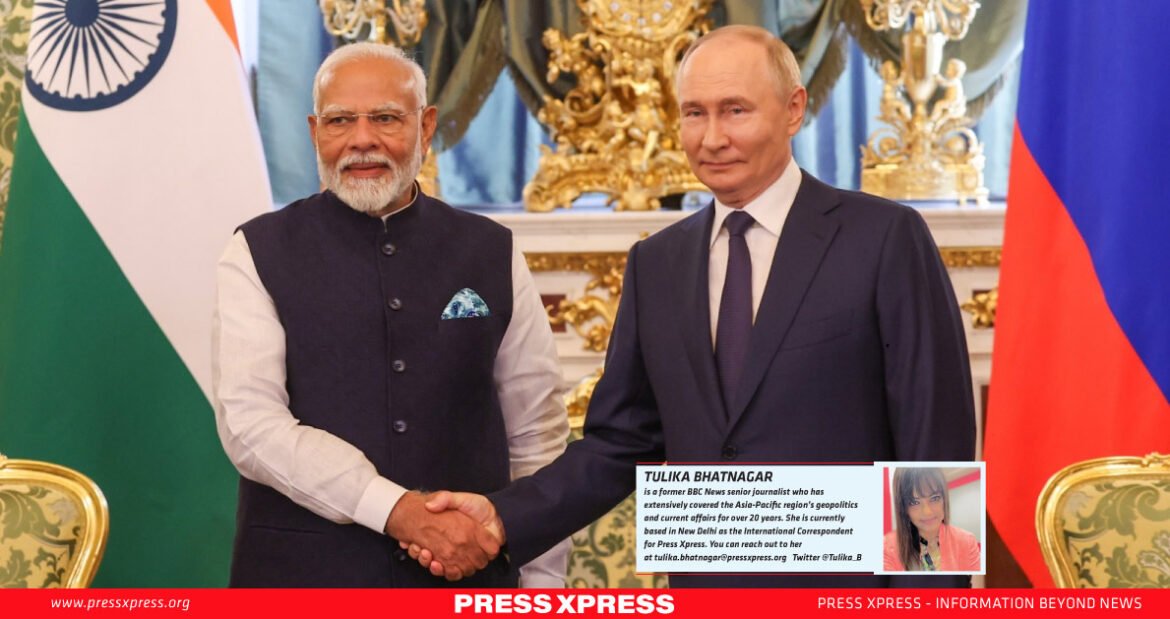India and Russia signed 9 agreements during Prime Minister Narendra Modi’s two-day visit to Moscow (8-9 July) for the 22nd bilateral summit with Russian President Vladimir Putin.
The deals cover several sectors including trade, research, media, and climate. PressXpress was among the first few media houses to have reported on an impending agreement on climate.
You Can Also Read: Old friends, new ties: What Modi’s trip means for Russia, India
The Indian Ministry of External Affairs the full list of outcomes after Modi-Putin talks.
Check out the list of outcomes: Official visit of Prime Minister Narendra Modi to Russia
Earlier, PM Modi also endorsed President Putin for strengthening bilateral ties during his leadership of over two decades. He praised Russia as India’s “trusted ally” and “all-weather friend”, amid the isolation of Russia by the Western world, due to the Ukraine war. Modi also said, “what the world needs right now is confluence not influence…”, calling for diplomacy and talks to resolve the conflict.
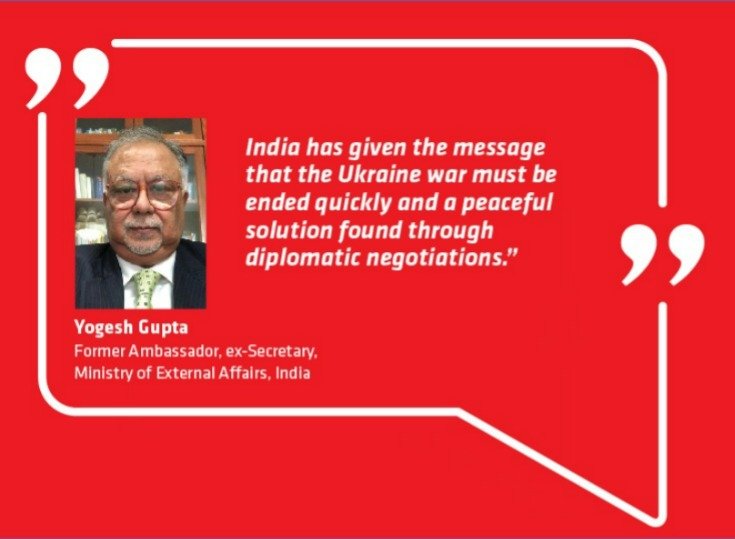
Speaking to PressXpress, Gupta added, “Russia is India’s traditional friendly partner and PM Modi undertook this visit to exchange views with President Putin on global, regional and bilateral issues… Both discussed concrete ideas on how our bilateral relationship could be strengthened further.”
Ambitious trade target
A major thrust of Modi-Putin talks was economic engagement, in addition to the 9 MoUs (memoranda of understanding) that were signed, according to India’s Foreign Secretary Vinay Mohan Kwatra.
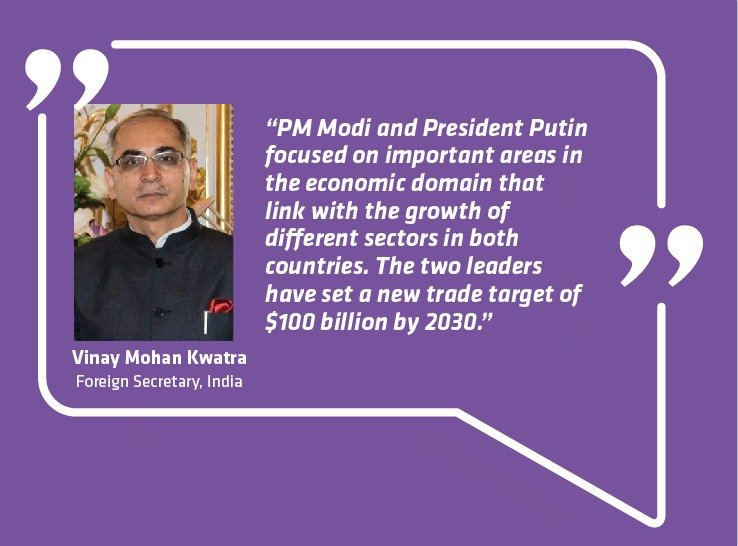
“The two leaders focused on important areas in the economic domain that link with the growth of different sectors in both countries,” Kwatra announced following high-level talks in the Kremlin. “The two leaders have set a new trade target of $100 billion by 2030.”
Previously, the bilateral trade target was $30 billion by 2025, which in 2023, shot up to a surplus of $65 billion due to a surge in oil purchases by India. Going forward, Russia may also ink a long-term agreement with India to supply crude oil on a sustainable basis.
President Putin mentioned in his preliminary comments, that bilateral trade between Russia and India had already grown by 66% last year and 20% just in the first quarter of 2024 – pointing out that the $100bn target was safe to achieve.
However, India’s exports to Russia stood at only $5 billion last year, and PM Modi pointed out that there was a need to “broad base the trade basket of goods” between the two countries.
The India-Russia joint vision statement on trade and economic cooperation by the end of the decade looked at eliminating non-tariff barriers, developing and using a national payment mechanism, building new connectivity corridors, such as the Chennai-Vladivostok maritime route and the International North-South Transport Corridor via Iran, investments in nuclear energy, and infrastructure development.
This focus on economic engagement is a shift from previous summits, which mostly focused on military supplies and defence cooperation.
In fact, Modi and Putin did discuss the issue of delays in defence supplies. The two leaders also committed to explore co-production of defence equipment like the India-Russia joint venture for assault rifles.
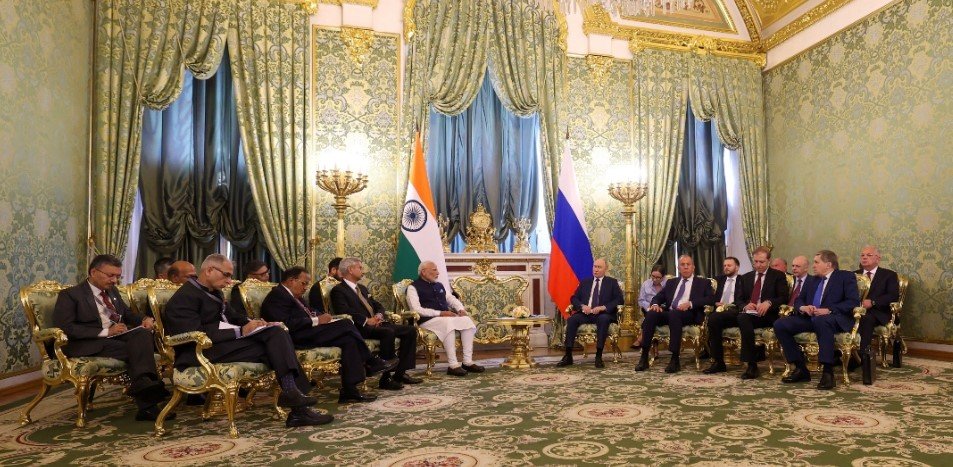
Defence co-production
The Russian state news agency TAS reported that New Delhi and Moscow will further develop military and military-tech cooperation.
The key areas of focus would include “joint research, experimental design, and co-production of advanced defence tech and systems”, the agency reported quoting an official statement.
Under the Make in India program, the two countries will also undertake joint manufacturing of spare parts, components, aggregates, and other products for maintenance of Russian origin arms and defence equipment, through transfer of technology and setting up of joint ventures for meeting the needs of the Indian Armed Forces as well as subsequent export to mutually friendly third countries.
A significant development is Putin accepting Modi’s request for early discharge of Indians hired as security helpers and forced to fight alongside the Russian Army against Ukraine.
In fact, Moscow offered a compensation package and citizenship to the families of the deceased.
At least 50 Indians are said to be serving in the Russian Army, and around 30 of them are said to have expressed their desire to return to India. Around 10 have been repatriated.
Ukraine war
Modi’s visit was also the first since Russia’s full-scale invasion of Ukraine in 2022.
India has had a tricky task balancing its ties with Russia since then – refusing the Western countries in condemning Putin’s invasion and abstaining from all UN votes denouncing Russia.
During his two-day visit also, Modi trudged a delicate path, highlighting the complexities of India’s diplomatic tightrope walk over Ukraine.
At an informal dinner, Modi reportedly made his most direct appeal for Putin to end the war in Ukraine, telling the Russian president that “there is no solution on the battlefield”.
Modi’s visit coincided with Russian attacks on Ukrainian cities, which reportedly resulted in the death of nearly 40 people including many children, prompting strong criticism from Ukrainian President Volodymyr Zelensky. “It is a huge disappointment and a devastating blow to peace efforts to see the leader of the world’s largest democracy hug the world’s most bloody criminal in Moscow on such a day,” Zelensky said in a post on X.
“Recent attacks allegedly by the Russian troops on the civilians in Ukraine and by the Ukrainian troops on the civilians in beaches in Crimea and elsewhere are unfortunate,” Gupta told PressXpress. “This war has unfortunately been going on for over two years… adequate efforts to end it should have been made by all the parties involved in the conflict in the beginning itself. Even in the US, it is quite clear now that support for continuing the war is declining sharply.”
Modi has communicated to Putin India’s willingness to offer any assistance in establishing peace in Ukraine. Russian state TV quoted Modi as saying that war was “not a solution”.
“Whether it is war, conflict or a terror attack, any person who believes in humanity, is pained when there is loss of lives,” Modi said. “But even in that, when innocent children are killed, the heart bleeds and that pain is very terrifying.”
Meanwhile, in India, the trip is being seen as a sign that New Delhi and Moscow remain close despite Russia’s deepening ties with China. Russia on its part, has confirmed its backing for India’s bid for a permanent seat on the United Nations Security Council (UNSC).
“India votes in favour of all Russian initiatives (at the UNSC),” said Russian Foreign Minister Sergey Lavrov, as quoted by TASS.
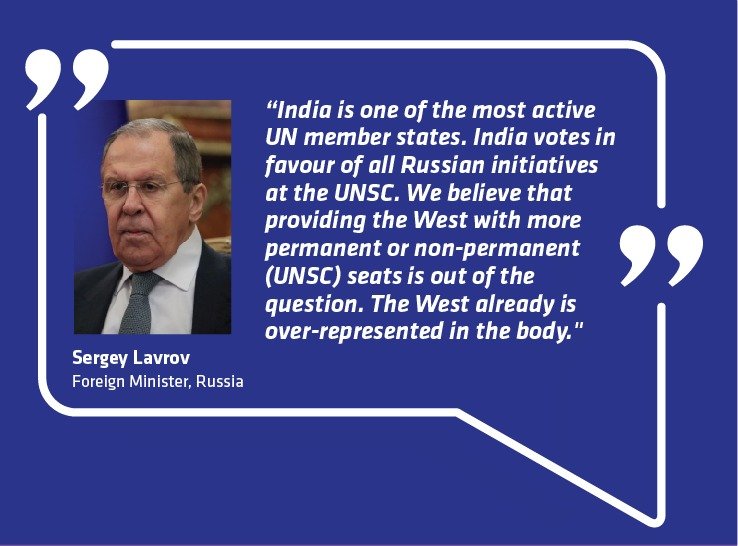
“We believe that providing the West with more permanent or non-permanent (UNSC) seats is out of the question. The West already is over-represented in the body… while India is one of the most active UN member states,” Lavrov added.

